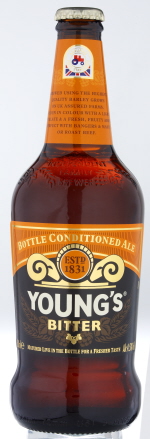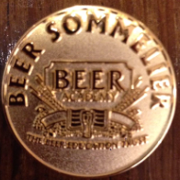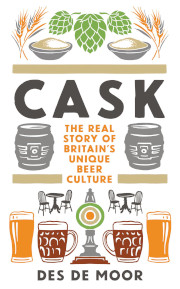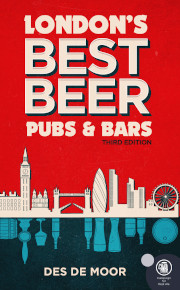First published in BEER July 2008 as part of a piece on beers recently converted to bottle conditioning. Young’s Bitter also included in Top Tastings 2008.
ABV: 4.5 and 4.8 per cent
Origin: Bedford, Bedfordshire
Website www.wellsandyoungs.co.uk

Wells and Young's Young's Bitter
When you consider how perilously close British bottle conditioned beer was to extinction a couple of decades or so ago, its resurgence today seems miraculous. The Good Bottled Beer Guide, in which my fellow BEER contributor Jeff Evans aims to provide comprehensive listings of Real Ale in a Bottle, gets fatter with every edition and now lists many hundreds of beers.
Nearly all of these, however, are new launches, the vast majority from new generation small breweries. Few traditional independents offer bottle conditioned beers, and very rarely have brewers been brave enough to take established brands that were previously filtered and/or pasteurised and convert (or restore) them to real versions.
We should be more than usually gladdened, then, to hear that over the past couple of months not one, but two, well-established and already well-rated bottled brands from historic breweries have been relaunched as Real Ale in a Bottle. First came the news that Wells and Young’s was expanding its RAIB portfolio, including converting Young’s Bitter to bottle conditioning. Then Hook Norton announced the bottled version of its classic Double Stout was going live.
These moves follow on from modest but notable increases in support by supermarkets looking to position bottle conditioned beers as a premium product, suggesting the old excuse that “customers don’t like sediment” is becoming increasingly less relevant. Let’s hope that other big supermarket speciality names like Badger, Batemans, Harviestoun, Marstons/Wychwood and Robinsons are taking heed.
Wells and Young’s might now be one of our “new nationals” but I’m impressed with how well Young’s rich legacy is being looked after in Bedford. London real ale drinkers were traditionally expected to offer their loyalty to either Fullers or Young’s – but while London Pride remains the taste of my formative years, I’ve discovered there’s much to be said for the quenching and curiously astringent delights of Ordinary, as Young’s Bitter on draught is known to its aficionados. That character was well preserved in the move from Wandsworth to Bedford, and now the bottled version – long brewed at a more robust gravity than the draught – has gone real, an appropriate compliment to a beer already so rich in heritage.
It’s a pale copper coloured ale made with a traditional grist of Maris Otter pale malt, Fuggles and Goldings hops – the first from a major British brewer to carry the Red Tractor award guaranteeing quality assured production. It pours with a fine white head and an aroma very much like the draught version – sweetish, malty and slightly sour and sulphurous. A firm, tasty barley sugar palate also has a dash of characteristic acidity, with crisp but restrained hops and faint, subtle orange.
A moreish, lightly bitter finish offers subtle citric flavours before developing quite peppery hop notes, but overall subtler and noticeably fresher than the previous pasteurised interpetation. It’s a taste experience comparable to sinking a well-kept pint of Ordinary in a pub, and I can’t think of a higher compliment.
Kew Gold is the second beer to emerge from the brewery’s partnership with the Royal Botanic Gardens, Kew, a little way up the Thames from its former Wandsworth site. Rare hops are grown in the Gardens and small amounts have been used at the brewery, but production is limited so this beer is “inspired” by Kew hops – instead Styrian Goldings are matched for flavour, with a grist of lager malt and a small amount of crystal, and a proportion of the proceeds goes to Kew.
This is a rich deep gold beer with a fine white head and grassy lager-like hops in the aroma. A full-bodied slightly syrupy palate has lime citrus notes and a layer of resinous hops from the start, with fresh cereal notes and fruit. A controlled peppery bitterness develops alongside more malt and fruit in a slightly gingery finish. It’s a pleasantly hoppy, quaffable but characterful beer and a good entry level Real Ale in a Bottle for the premium lager drinker.
For more beers recently converted to bottle conditioning, see next post.
Read more about these beers at ratebeer.com:
http://www.ratebeer.com/beer/youngs-bitter-bottle-conditioned–45/104149/
http://www.ratebeer.com/beer/youngs-kew-gold-bottle/86957/






Leave a Reply